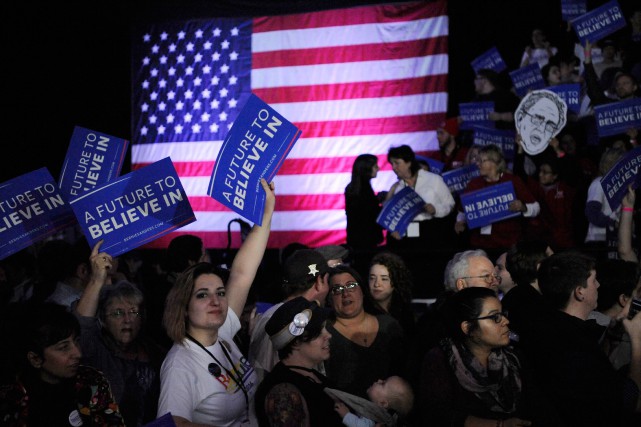
Two bits of really good news emerged from the Iowa caucuses.
First, Bernie Sanders’ surprise triumph indicates that Hillary Clinton’s coronation, though still infinitely probable, will not come as easily as expected.
Second, the excellent performance of the young Florida Sen. Marco Rubio leads one to believe that the Republican Party will choose a more presentable candidate than Trump or Cruz.
Sanders, who nobody would have bet $5 on a year ago, finished the race three tenths of a percent behind Clinton – you might as well call it a tie. He could also win next Tuesday’s New Hampshire primary. Of course, the Vermont senator will be right at home in neighboring New Hampshire. And Iowa, which is a small, rural, white state, is not representative of the rest of the country.
But, it doesn’t matter. Sanders probably won’t be able to thwart Hillary Clinton’s campaign in the long run, since she has the entire party establishment behind her and phenomenal financial resources. But his successes will have a definite psychological impact and could lead many voters to ask questions about the ex-first lady’s ties with high finance.
In Iowa, over 80 percent of young Democrats said they supported the Vermont senator — a man who could be their grandfather, but who embodies values that are rare in these financially corrupt American elections: integrity and some egalitarian aspirations.
Young Democrats in other states will react the same way – and this reaction could spread to part of the middle class, even if Sanders will always have the hindrance of being a marginal candidate with limited resources. If he won the nomination, he would be unable to beat the Republican machine.
God knows why Sanders stubbornly refers to himself as a “socialist” (which will alienate a majority of voters), when he isn’t one at all, at least not by the definition used outside of the United States. Sanders is a good old social Democrat who would be to the right of the NDP, and would fit in perfectly with the Canadian Liberal Party.*
On the Republican side, we saw Donald Trump’s star fade, demonstrating that a poll isn’t an election, and that to win in politics, it’s not enough to entertain gawkers and increase the number of outrageous statements – you also need a solid organization and at least a minimal amount of discipline.
Ted Cruz, on the other hand, who beat Trump by four points, relied on a formidable base of Evangelicals and the extreme right of the party. Marco Rubio, by coming in just behind Trump, won the credibility battle to a certain extent.
People are predicting the “smart money” — the Republican donors’ manna — will go to him, and that he’ll become the favorite candidate of the party establishment. They know full well that extremists like Trump and Cruz have no chance of bringing the Grand Old Party back to the White House.
Moderate Republicans are suspicious of the wildcard that is Donald Trump and are scared stiff of Ted Cruz, who could create for himself a small empire within the party, made up of tea party members and the religious right.
Jeb Bush, who would have been moderates’ logical choice, hasn’t delivered. That leaves the other Florida senator, a Hispanic American and son of Cuban refugees, whose modest origins will be a welcome contrast to the pomp that now characterizes the Clinton dynasty.
The big question concerns former New York City Mayor Michael Bloomberg, a man who has dabbled somewhat in both parties, and who has already hinted he would throw his hat in the ring if Hillary Clinton’s candidacy seemed shaky. This is a hypothetical scenario that would turn things completely upside down… but it’s too early to call.
* Editor’s note: The NDP is the New Democratic Party, a social-democratic federal political party in Canada, which was founded in 1961.

Leave a Reply
You must be logged in to post a comment.